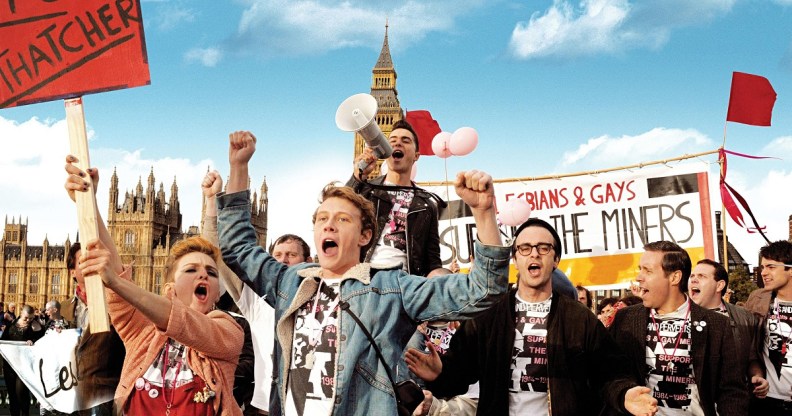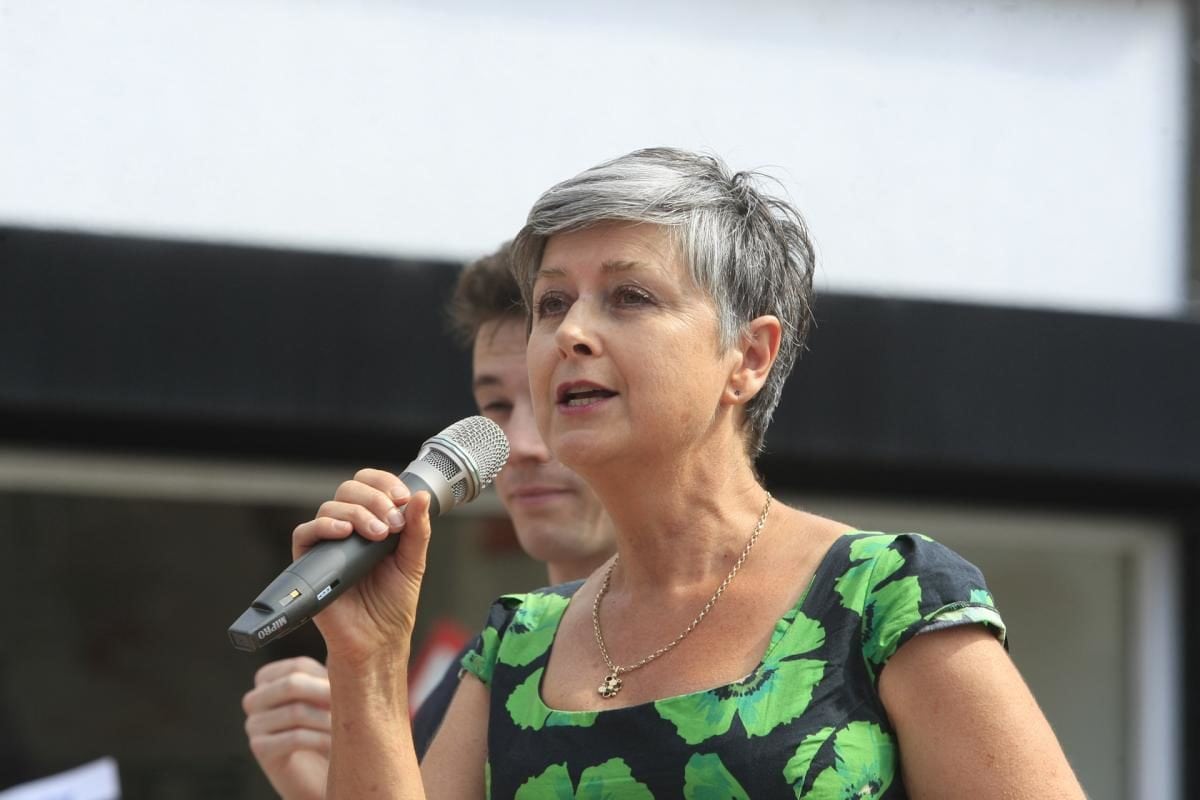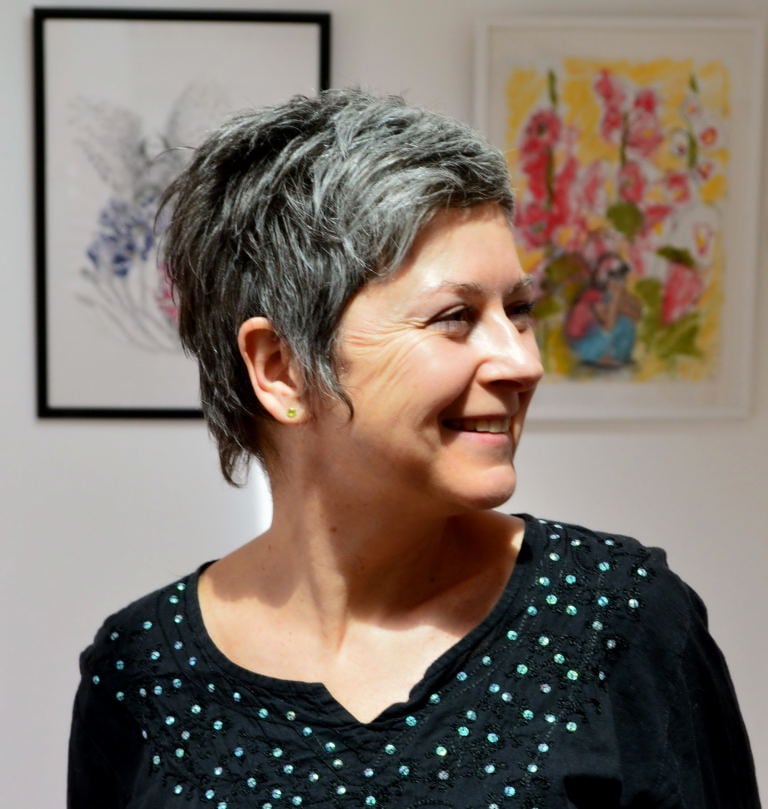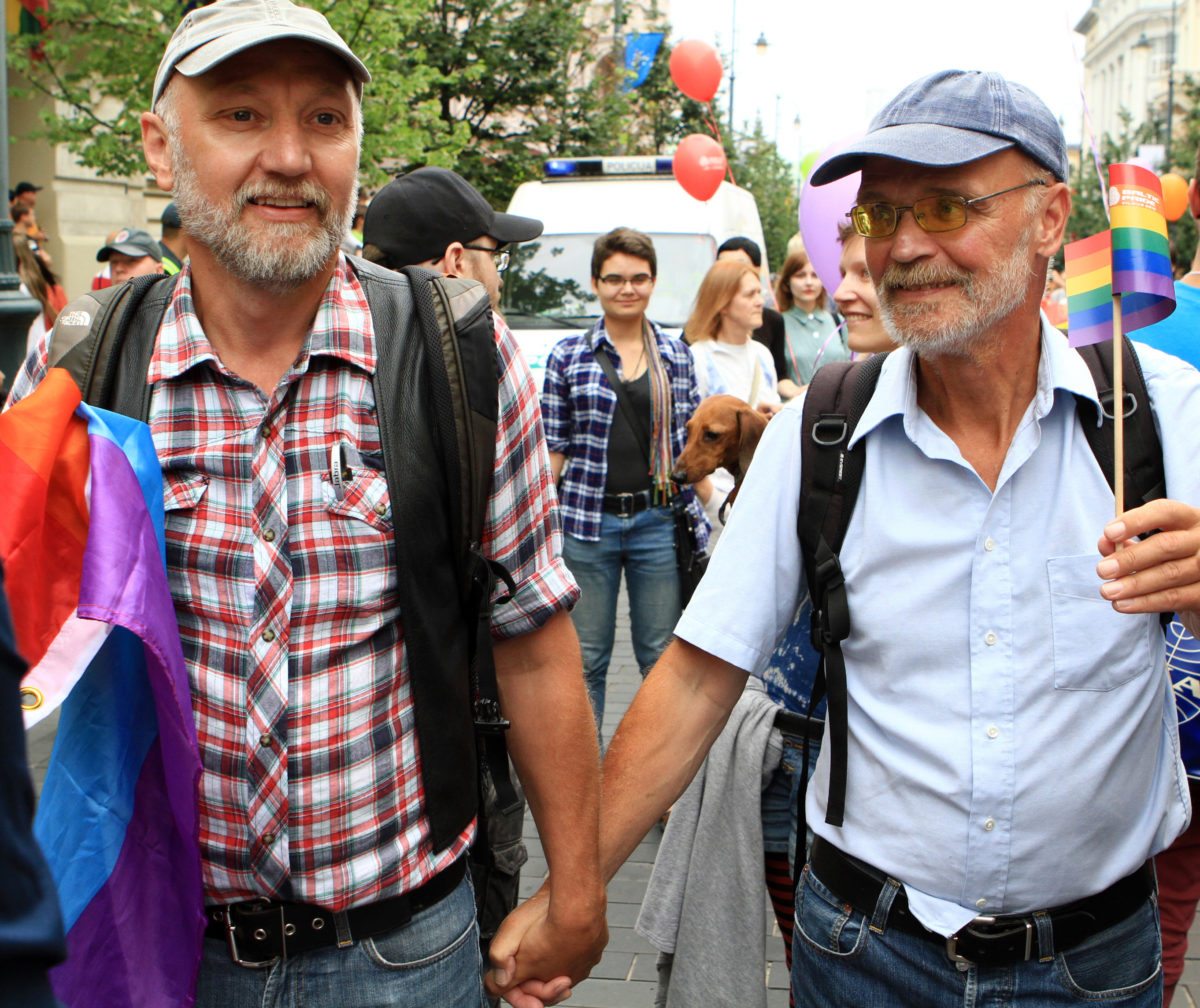Lesbians and Gays Support the Miners activist forced to crowdfund after disability benefits cut

An original member of Lesbians and Gays Support the Miners, the group made famous in the film Pride, is being forced to crowdfund after her disability benefits were cut.
Nicola Field, who was also a founding member of the spin-off group, Lesbians against Pit Closures, had her benefits payments cut in February. The decision forced her to return an accessible car used to get to medical appointments.
Now friends and colleagues are trying to raise £2,000 for Field, who suffers from ME, a chronic neurological condition characterised by fatigue, soreness and weakness.
She told PinkNews: “Without my [accessible] car, I’m really severely limited in the journeys I can make and the things I can do.
“There are legions of people in my situation, who’ve lost their Motability car, and are in great distress, discomfort and isolation because of that.
“The government has been discovered to have targets on removing or reducing PIP payments, so I’m just falling into that category of having my benefits reduced.”

An assessment in February reduced Field’s benefits from an enhanced rate to a standard rate, money which she had used to cover the costs of living with her long-term illness.
The assessments aren’t designed to be straight-forward and help people, says Field, but are instead full of traps intended to catch people out.
One of the things used as evidence for awarding a lower rate was that she could maintain eye-contact with her assessor, which supposedly indicated lack of tiredness.
She said: “Even though I’ve got diagnoses from medical professionals in the NHS, these are disregarded by the observations of the assessor, who’s coming in with an agenda to find evidence that you don’t need help.”
“If I were to say that some days I’m too tired to make meals, they’ll say the gesticulating hands [in the assessment] aren’t consistent with that.”
Field used her accessible car to battle isolation, and to meet with friends from an ME group that she is part of.

She was able to put another driver on the insurance free-of-charge, meaning she could still be driven to places when she was too ill to drive.
“Without my car I’m much more isolated, and any journey now is more stressful, very expensive, so I do less of them,” she says.
She is having to use Uber to get to medical appointments or to events where she is a speaker.
The added stress and expense of the trips contribute to the fatigue and debilitation she experiences afterwards, Field says.
Now the activist is going through a process of challenging the decision of the assessment – a ‘mandatory reconsideration,’ where a claimant can submit new medical evidence to get the decision looked at again.
“From the point of view of people who need help, the system is bitterly weighted, and it doesn’t work for us at all,” she added.
Although there is no official deadline for the process to be completed by, Field has been waiting for 13 weeks so far.
The activist says she has tried to get in contact with the assessors for an update on her appeal but cannot stay on the phone long enough to get through.
Over half of the appeals for a mandatory reconsideration are successful according to Citizen’s Advice.
Her friend, Tracey Davies, started the fundraiser after reading about the “inhumane” decision on Facebook.
She said: “Nicola and I have become closer friends just from being involved in this process and I really hope we are successful with keeping a powerful activist travelling around the country.”

Men hold hands while taking part in the ”Baltic Pride 2013” march on July 27, 2013, in Vilnius. A number of cultural and human rights events make up Baltic Pride -including a film festival, plays, poetry and prose readings. PETRAS MALUKAS/AFP
Lesbians and Gays support the Miners (LGSM) was a group of LGBT activists who formed to support striking miners in 1984-1985.
The organisation fundraised for those on strikes through appeals and charity concerts, including the Pits and Perverts gig headlined by the Bronski Beat in December 1984.
A spin-off group called Lesbians against Pit Closures, which Field helped to found, was formed because some women in the group felt they wanted to organise in a different kind of atmosphere.
LGSM’s activities were dramatised in the hit BBC film Pride in 2014, which Field praises for bringing the group’s activities to a mainstream audience.
“As soon as I met the writer and I saw the first cut of the film, I realise it would ignite an enormous amount of political hunger in young LGBT people,” she says.
However, the group formally disbanded in 2015, saying they did not want to become an “LGBT version of the British Legion.”
At the time of writing, the appeal, which says it is fighting against Field’s “disgraceful” assessment, has raised £1,115, just over half the target amount.

